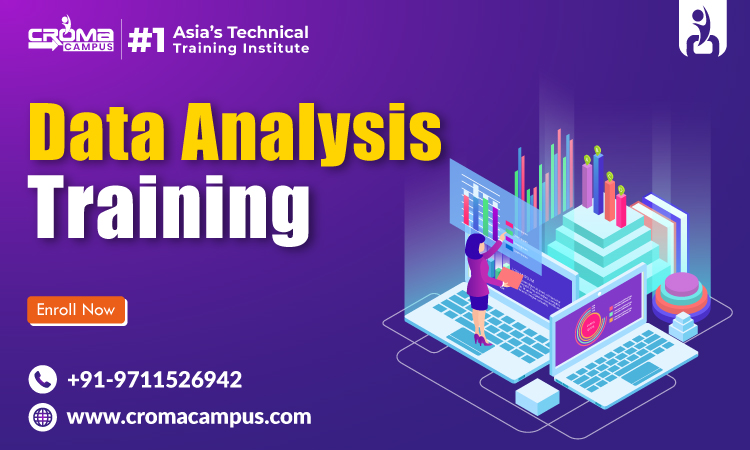
Introduction:
In today’s data-driven world, understanding data analytics is crucial for businesses and professionals alike. But what exactly is data analytics? Simply put, data analytics is the science of analyzing raw data to make conclusions about that information.
It involves various techniques and processes to inspect, cleanse, transform, and model data with the goal of discovering useful information, informing conclusions, and supporting decision-making. In this post, let’s discuss how a Data Analysis Online Course can help you in your career journey.
Understanding Data Analytics
Data analytics is the backbone of decision-making in many industries. By analyzing data, companies can gain insights into their operations, customers, and market trends, which can help them make more informed decisions. The process involves several steps:
1. Data Collection: Gathering data from various sources such as databases, sensors, and user input.
2. Data Cleaning: Removing inaccuracies and inconsistencies in the data to ensure accuracy.
3. Data Analysis: Applying statistical methods and algorithms to analyze the data.
4. Data Interpretation: Drawing conclusions and insights from the analyzed data.
Why is Data Analytics Important?
Data analytics is important for several reasons:
– Improved Decision Making: By analyzing data, businesses can make decisions based on facts and trends rather than intuition.
– Operational Efficiency: Identifying inefficiencies and areas for improvement can streamline operations and reduce costs.
– Enhanced Customer Experiences: Understanding customer behavior and preferences allows for more personalized and effective marketing strategies.
– Competitive Advantage: Businesses that effectively use data analytics can stay ahead of competitors by quickly adapting to market changes and trends.
Types of Data Analytics
Data analytics can be categorized into four main types:
1. Descriptive Analytics: Focuses on summarizing historical data to identify trends and patterns. This type of analytics answers the question, “What happened?”
2. Diagnostic Analytics: Examines data to understand why something happened. It involves more detailed analysis to determine the causes of past events.
3. Predictive Analytics: Uses statistical models and machine learning techniques to predict future outcomes based on historical data. It answers the question, “What could happen?”
4. Prescriptive Analytics: Recommends actions that can be taken to achieve desired outcomes. This type of analytics goes a step further by suggesting ways to take advantage of future opportunities or mitigate future risks.
Learning Data Analytics
Given the increasing importance of data analytics in various fields, there is a growing demand for professionals skilled in this area. Many people are turning to online courses to learn data analytics due to the flexibility and convenience they offer.
Data Analytics Online Course
A Data Analysis Online Course is a great way to gain the necessary skills and knowledge in this field. These courses typically cover topics such as data collection and cleaning, statistical analysis, data visualization, and machine learning. They are designed to be accessible to beginners as well as those looking to enhance their existing skills.
Data Analytics Course Fees
The Data Analytics Course Fees can vary widely depending on the provider, the depth of the course, and the credentials offered. On average, you can expect to pay anywhere from $200 to $2,000 for a comprehensive online course. Some courses offer certifications upon completion, which can add value to your resume and career prospects.
Careers in Data Analytics
With a solid foundation in data analytics, you can pursue a variety of career paths, including:
– Data Analyst: Responsible for interpreting data and providing insights to help organizations make better decisions.
– Data Scientist: Uses advanced analytical techniques and machine learning to extract insights from data.
– Business Analyst: Focuses on using data to improve business processes and strategies.
– Data Engineer: Designs and maintains the infrastructure for data generation, storage, and retrieval.
– Statistician: Applies statistical methods to solve real-world problems in various fields such as healthcare, finance, and marketing.
Conclusion
Data analytics is an essential tool for making informed decisions in today’s data-rich environment. By understanding the different types of data analytics and how they can be applied, businesses and professionals can gain valuable insights that drive success. Investing in a Data Analyst Course fees is a great way to start or advance your career in this exciting field.
While the Data Analytics Course Fees can vary, the benefits of acquiring these skills far outweigh the costs. Whether you’re looking to enhance your career prospects or improve your business operations, learning data analytics is a step in the right direction.




